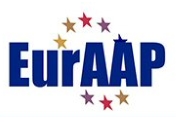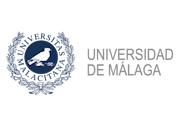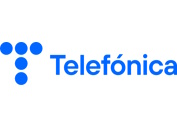Cybersecurity and trust in the 6G era
Wednesday, 4 June 2025, 14:00 – 15:30, room Earth Hall A (level 2)
Organizer
- Valeria Loscri (Inria Lille, FR)
Motivation and Background
In the 6G era we are assisting to an unprecedented transformative change in connectivity. Advanced technologies undoubtedly permit advanced applications and services, changing and impacting our daily life. These developments come with a profound change of security landscape, and important implications in terms of trust and how organization and individuals interact in the digital realm. In this changed digital world, the massive integration of Artificial Intelligence and Machine Learning (AI/ML) is undeniable. Anyway, AI/ML come with a double-edged sword. From one side they are a powerful tool to predict and prevent attacks before they occur. The hand of criminals can be armed with this powerful tool, to create unprecedented attacks, with catastrophic consequences. Moreover, the hyper-connected world is with a huge amount of data generated by connected devices, raising privacy concerns. It is clear that the updated regulations need to be defined, with evolved legal frameworks capable to tackle the complex evolution of the technology, without being a “brake’ on it. In this frame, ethical concerns regarding intelligent algorithms, taking key decisions become paramount. Interlaced with the trustworthy concept must be an evolved ethical concept, with suitable frameworks that improve from one side the level of security and guarantee the human rights and societal values from another side.
This renewed digital landscape cannot be siloed in national borders. It is necessary to establish a cyber diplomacy, with collaboration among governments, international bodies, private companies, converging on common policies to protect against global security vulnerabilities.
In this context, it is urgent to encourage and push the interactions among individuals, organizations, ethical standards and international cooperation and this panel can be a unique opportunity in this direction.
Questions
- Cybersecurity in 6G: what is new, what is to be done?
- How Trust and Ethical Factors can be developed in the hyper-connected world?
- Hyper-connected world means huge amount of data: where are we in terms of regulations?
- How research, company and public bodies may cooperate towards a common vision?
- Use of AI/ML in cybersecurity: the beauty or the beast?
Participants
- Chair: Valeria Loscri (Moderator) (Inria Lille, FR)
- Emrah Tomur (Nokia, DE)
- Marija Furdek Prekratic (Chalmers U., SE)
- Hartmut Aden (Berlin Institute for Safety and Security Research, DE)
- Przemysław Latos (Director of Innovations in Operator Solutions, Orange Innovation Poland, PL)

Valeria Loscri
Valeria Loscri is researcher director in the FUN Team at Inria Lille (France), that she joined in 2013. From Dec. 2006 to Sept. 2013, she was Research Fellow in the TITAN Lab of the University of Calabria, Italy. She received her MSc and PhD degrees in Computer Science in 2003 and 2007, respectively, from the University of Calabria and her HDR (Habilitation à diriger des recherches) in 2018 from Université de Lille (France). Her research interests focus on cyber security in wireless networks, emerging technologies for new communication paradigms such as Optical Wireless Communication (OWC), mmWave, cooperation and coexistence of wireless heterogeneous devices. She is involved in the activity of several European Projects (Horizon Europe MLSysOps, H2020 CyberSANE, FP7 EU project VITAL, etc.).
She has been nominated to the 2021 Women Stars in Computer Networking and Communications Communications by the IEEE Communication Society and recognised by ECWD as Cyber Researcher 2024. She is in the editorial board of IEEE COMST, Transactions on Information Forensics and Security (TIFS), Elsevier ComNet, ComCom. She is serving as TPC members in several primary international conferences, such as IEEE ESORICS, IEEE CNS, IEEE INFOCOM, IEEE PerCom.
She is Action Chair and Scientific Holder of BEiNG-WISE COST Action (since 2023). Since 2019, she is Scientific International Delegate for Inria Lille.

Emrah Tomur
Dr. Emrah Tomur is heading up security research and standardization in Nokia since 2024 based in Munich, Germany. He has more than 25 years experience in the field of information and communication security in both academia and private sector. Before joining Nokia, he took various roles in industry including Head of Security Research, R&D Manager, and Technology Transfer Director. He also taught several undergraduate and graduate courses, and supervised several master’s and PhD theses into successful completion in different universities in Turkiye and in the UK. Dr. Tomur has numerous research papers published in journals and conference proceedings in the area of security and holds international patents. He worked in various national and international research and development projects funded by EU or national agencies. Emrah Tomur received the B.S. and M.Sc. degrees in Electronics Engineering from Bilkent University, Turkiye, in 1999 and 2001, respectively, and the Ph.D. degree in Information Systems from METU, Turkiye, in 2008.

Marija Furdek
Marija Furdek received the Dipl.-Ing. and the Ph.D. degrees in telecommunications from the Faculty of Electrical Engineering and Computing, University of Zagreb, Croatia, in 2008 and 2012, respectively. Since 2024, she has been an Associate Professor at Chalmers University of Technology, where she joined in 2019 as an Assistant Professor. Previously, 2013-2019, she was with KTH Royal Institute of Technology in Stockholm, Sweden. Her research interests include the design of high-performance optical networks supporting next generation services, physical-layer security, reliability analysis and optimization techniques. She has authored over 130 publications, 5 of which received Best Paper Awards. She was a PI and WP leader of research projects funded by the EU, the Swedish Research Council, and Swedish innovation agency VINNOVA.
Dr. Furdek is a Senior Member of Optica and IEEE, and was an IEEE ComSoc Distinguished Lecturer 2023-2024. She is an editor of the IEEE/Optica Journal of Optical Communications and Networking and Springer Nature Photonic Network Communications. She was a guest editor of IEEE/Optica Journal of Lightwave Technology and IEEE Journal on Selected Topics in Quantum Communications. She was/is a TPC Co- Chair of RNDM 2025, EuCNC & 6G Summit 2023, a General Co-Chair of IEEE ONDM 2021, chair of ECOC subcommittee SC 10 (‘Control and management of optical networks’) 2024-2025 and member of OFC SC N3 (‘Architectures and Software-Defined Control for Metro and Core Optical Networks’) 2023-2025.

Hartmut Aden
Hartmut Aden is Professor of European and German Public Law, Public Policy and Public Administration at the Berlin School of Economics and Law (HWR, Hochschule für Wirtschaft und Recht Berlin) He studied Law and Social Sciences at Georg-August University in Göttingen, Leibniz University Hanover and the École des Hautes Études en Sciences sociales (EHESS) in Paris. He obtained his Doctoral degree from Leibniz University in 1997. Before joining HWR Berlin in 2009, he was Assistant Professor at Leibniz University Hanover from 1997-2005 and Senior Audit Manager in the German Federal Court of Audit (Bundesrechnungshof, Bonn) from 2005-2009. At HWR Berlin he served as Data Protection Commissioner of the University (2011-2020), Deputy Director of the Berlin Institute for Safety and Security Research (FÖPS Berlin) (2016-2020) and Vice President for Research and Knowledge Transfer of the university (2020-2024). His research, publications, and teaching cover topics related to security and policing, human rights, data protection, public finance, and environmental protection. His recent research projects are related to Financial Accountability in the European Union, legal and societal aspects of security technologies (including Artificial Intelligence), the comparative study of police accountability bodies and global supply and value chains. www.hwr-berlin.de/prof/hartmut-aden

Przemysław Latos
Przemyslaw Latos is an accomplished telecom and cybersecurity leader with nearly 16 years of experience at Orange Polska. As Director of Innovations in Operator Solutions at Orange Innovation Poland, he drives the development of secure, next-generation network solutions within the Orange Group. His work focuses on future-oriented technologies, cloud-native architectures, and AI-driven security. Over the years, he has led large, multidisciplinary teams working across ICT, VoIP, and Unified Communications, with a consistent emphasis on security by design. He has played a key role in designing, testing, and deploying secure communication infrastructures used across the Orange Group worldwide. His expertise spans both technical architecture and strategic innovation, including close collaboration with international labs and cybersecurity specialists in France, India, Tunisia, and beyond.














